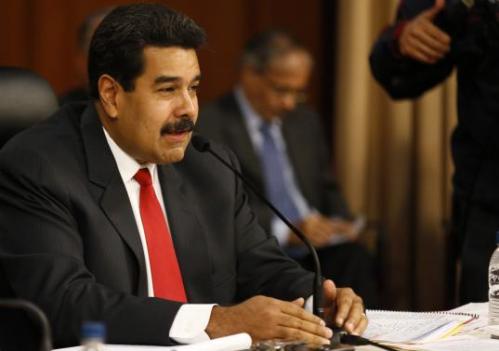
Iraqi oil production has surged. Source: EIA
[Updated/edited 5 June] The New York Times had an interesting article: “China is reaping biggest benefits of Iraqi oil boom” on June 2, 2013. The question that comes to mind is …
Why is Chinese production in Iraq booming, and in Venezuela lagging?
As late as 2007 and 2008, China clearly intended its investments in Venezuela to be its largest anywhere, to ramp up development of Venezuela’s huge Faja Orinoco extra-heavy oil reserves. In those years, Iraq was still mired in sectarian war. Yet, here we are in 2013, with Chinese production in Iraq surging and its companies’ production in Venezuela lagging. Why? Let’s first look at the Chinese relationship and logic in Iraq, then in Venezuela.
Geostrategic interests behind profit issue
The NYT article says that Chinese success in Iraq is largely because their oil companies aren’t especially interested in profits because they don’t have to answer to investors demanding higher returns; they just want to secure oil to bring home.
Yes, but one should see that this is also strongly a geostrategic imperative for Beijing. It is true Chinese firms can get along with lower profits, and they also have much more cash than others, which also helps them get in now at small profits for the long run. However, unlike other firms, they are under specific instructions by Beijing to persist at getting into countries with huge reserves like Iraq and Venezuela because it is in the geostrategic energy interests of Beijing to do so.
Chinese geostrategic motivations to stick in Iraq (and Venezuela)
Before examining the better situation, on the ground, for Chinese firms dealing with Baghdad as verses Caracas, it is important to recognize Beijing won’t ever give up on either state. Beijing is the one power having serious reservations about too much reliance on the US/Saudi-dominated “global barrel” market-and-security system. It is the only major power (aside from Russia) with aspirations to project power against the USA and its naval carrier fleets, at least in its near-home waters. For any such confrontation of any duration, it needs to have a certain significant percentage of oil brought directly home independent of the USA and the global market the USA dominates. So, China’s energy firms tend to blend their deepening integration into global oil-market processes with old-fashioned bi-lateral mercantilist relationships with producing states like Iraq and Venezuela. (See also the Addenda below.)
Different contractual and working relationships in Iraq and Venezuela

Venezuelan oil production has lagged. EIA 2012
Chinese firms are clearly more willing to work with the difficult resource-nationalistic conditions imposed by the Iraqi and Venezuelan states. However, in many ways Iraq’s are more difficult, yet Chinese–and many others–do better getting production going in Iraqi than Venezuela. Why? Continue reading →





